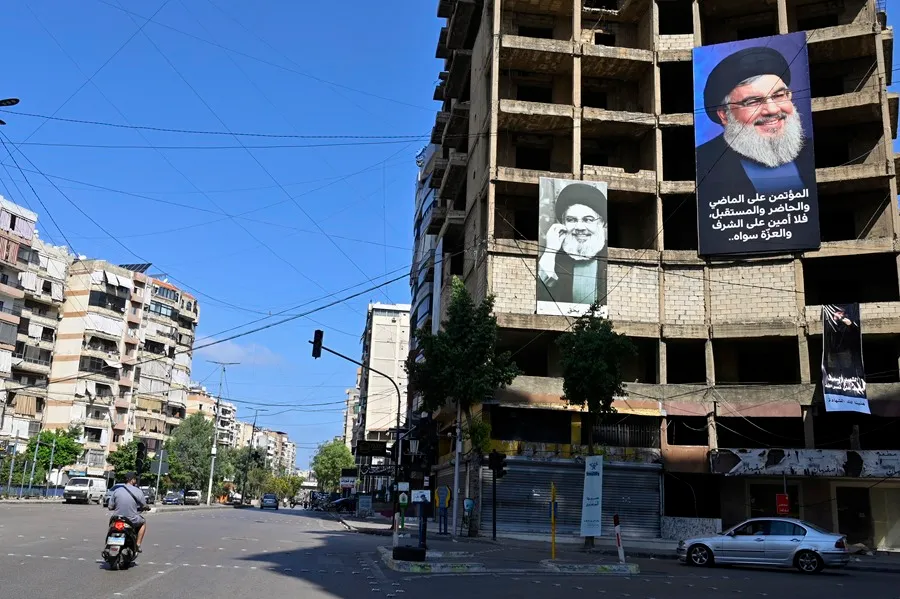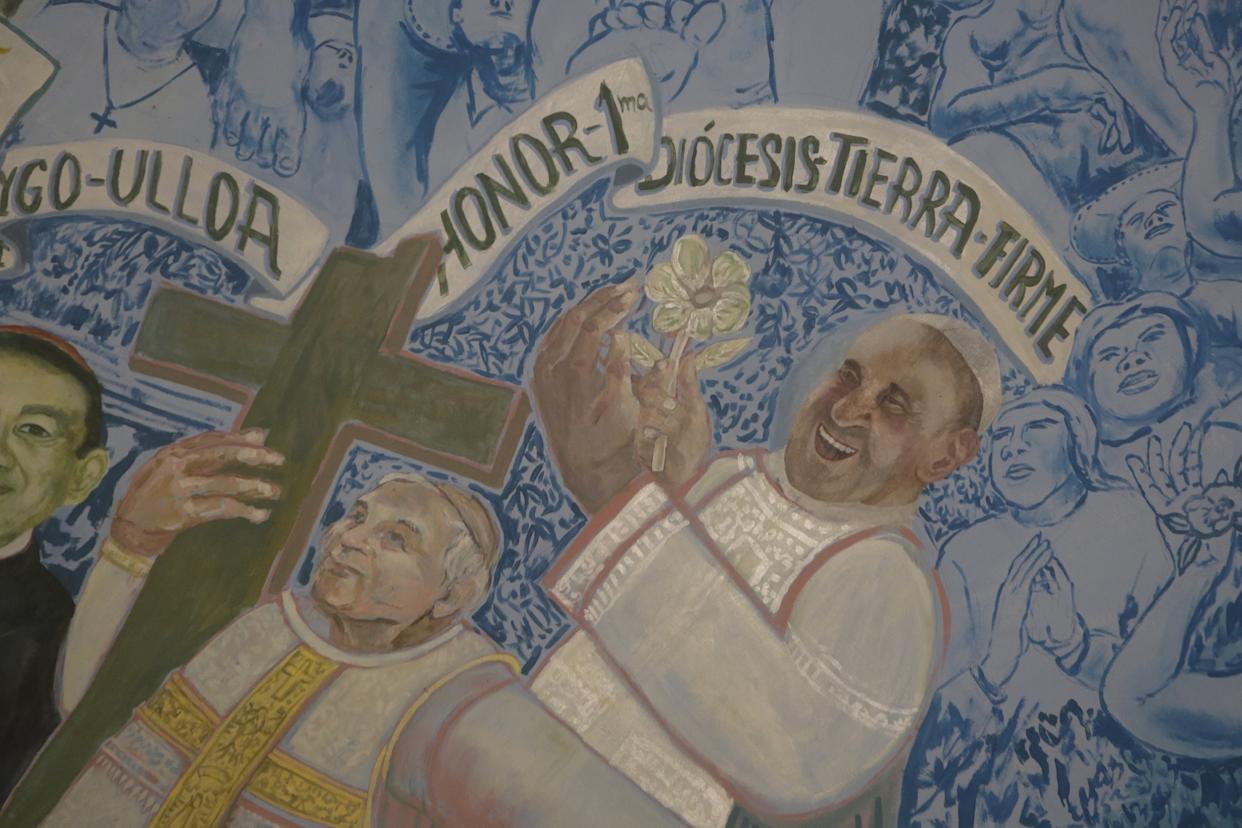International
Israel continues to shank the ranks of Hizbula as it counterattacks the Houthis in Yemen

Israel continued to bomb southern Lebanon and the southern suburbs of Beirut on Sunday, in addition to expanding the range of combat with a new bombing against the Yemeni port city of Al Hodeida, causing the death of at least four people and injuries to 40 others, according to a preliminary assessment.
“The Army carried out a precise attack in the Dahye area of Beirut,” a military statement said on Sunday. In this same area, and in the same way, yesterday Saturday, Israel killed Nabil Qaouk, commander of the Hezbulah Preventive Security Unit and in the last week, most of its military top.
As announced today by the Army, in addition to the top leader of Hizbulah, Hassan Nasrala, and its commander of the southern front, Ali Karaki, more than twenty members “of various ranks” died with them in Friday’s massive bombing in the suburbs of Beirut.
“These deaths do not mean the end of Hezbollah because it is deeply rooted in Lebanese society, but it does allow us to push them to the north of Lebanon and thus be able to create the conditions for the evacuated residents to return to their homes,” the military spokesman, Roni Kaplan, explained to EFE today.
Similarly, Miri Eisin, who served more than 20 years in Israeli military intelligence and heads Israel’s International Counterterrorism Institute, said today that despite being “very effective” attacks, they cannot yet be described as a “mate checkmate” against the Lebanese Shiite group.
“Israel still has immediate additional military threats to continue to deal with, despite the death of Nasralá, such as the arsenal and weapons of Hezbulah as well as all the tunnels” near the border, he added.
That is why, according to the Minister of Defense, Yoav Gallant, pointed out yesterday, the military corps is studying an “expansion of the activities” of the armed forces on the northern front, which could take the form of a land invasion, according to the Hebrew press, although of a very limited nature.
Karaki had already survived another air attack against the Dahye a few days earlier, when Hizbulah came out to deny information about his death that emerged from Israel and to affirm that his high command had “moved to a safe place” after the failed bombing.
At least part of the missiles fired that day fell in the area without exploding, according to Lebanese media.
Security sources cited by the Israeli press already described him then as the head of the group’s military activity in southern Lebanon and assured that he was also a member of the Jihad Council, the movement’s body in charge of security plans.
In the last ten days, Israel has launched several bombings against alleged targets of Hizbula in the southern suburbs of Beirut, the most serious the one that last Friday ended the lives of Karaki, Nasrala and other high-ranking officials not yet announced by the formation.
Israel attacks South Beirut again
Israel launched an air strike again this Sunday against the southern suburbs of Beirut, just 24 hours after confirming the death of the leader of the Shiite group Hezbollah, Hassan Nasrala, in a bombing on Friday against the Lebanese capital.
“The Army carried out a precise attack in the Dahye area of Beirut. More details will follow,” Israeli forces said in a brief statement.
This morning, the country announced the death of another senior official of the Shiite group, Nabil Qaouk, who was hit last night in an attack on the Dahye, a bastion of Hizbula and subjected to almost daily Israeli bombing since the beginning of the week.
International
DHS Secretary Kristi Noem’s Purse Stolen in D.C. Restaurant Heist

The purse of Kristi Noem, Secretary of the Department of Homeland Security, was stolen on Sunday night at a restaurant in Washington, D.C., Fox News Digital confirmed through several agency sources.
The handbag, taken by a white male wearing a mask, reportedly contained $3,000 in cash along with personal documents, including her passport, keys, driver’s license, and DHS badge, according to an agency spokesperson.
“Her entire family was in town, including her children and grandchildren. She was celebrating her retirement by treating them to dinner, activities, and Easter gifts,” the spokesperson added.
Crime continues to be a significant issue in the U.S. capital, particularly theft. However, violent crime reached its lowest level in 30 years last year, according to the Office of the Attorney General at the time.
International
Pope Francis: The Quiet Architect Behind the U.S.-Cuba Thaw

When then-U.S. President Barack Obama and Cuban President Raúl Castro announced the reestablishment of diplomatic relations in December 2014—after decades of hostility—there was a third figure present in both speeches: Pope Francis.
This thaw in U.S.-Cuba relations—later reversed by Donald Trump—was the result of behind-the-scenes negotiations personally encouraged by Pope Francis, who passed away on Monday at the age of 88, just over a year after becoming head of the Catholic Church.
Upon learning the news of the breakthrough, the pontiff humbly stated, “This was made possible thanks to the ambassadors and to diplomacy,” which he called “a noble, very noble job.”
In 2015, months after the announcement, Raúl Castro visited the Vatican and met with the pope. Over time, Castro developed a fondness for Francis that he never had for his predecessors, Benedict XVI and John Paul II. “If the Pope continues talking like this, sooner or later I’ll start praying again and return to the Catholic Church—and I’m not joking,” said the younger Castro, who, like his brother Fidel (1926–2016), had been educated by Jesuits—the same order to which Pope Francis belonged.
Pope Francis visited Cuba later that year. Just days before his arrival, the Cuban government announced the pardon of 3,522 common prisoners as an act of clemency.
While in Havana, the pope met with Fidel Castro, who gave him a first edition of the book Fidel and Religion by Brazilian friar and liberation theologian Frei Betto.
Criticism from the Opposition
Francis’s diplomatic approach also drew criticism from parts of the Cuban opposition. In a 2022 interview with Univision, the pope revealed he had “a human relationship” with Raúl Castro.
International
Dominican Republic Declares Three Days of Mourning for Pope Francis

Dominican Republic President Luis Abinader has declared three days of national mourning starting Tuesday following the death of Pope Francis, who passed away on Monday at the age of 88 in his residence at the Casa Santa Marta.
In an official decree, Abinader highlighted the pope’s legacy “as a global leader who promoted significant reforms within the Catholic Church and was known for his humility, openness to dialogue, and commitment to peace among nations.”
During the mourning period, the national flag will be flown at half-staff at military facilities and public buildings.
According to a statement from the Office of the Presidency, although Pope Francis never visited the Dominican Republic during his papacy, he maintained a close relationship with the country. He expressed solidarity and empathy during difficult times, including offering prayers for the victims of the recent tragedy at a Santo Domingo nightclub on April 8, which claimed 232 lives and left more than 180 injured.
-

 Central America5 days ago
Central America5 days agoNicaraguan Exiles to Mark 7th Anniversary of 2018 Protests with Global Commemorations
-

 International5 days ago
International5 days agoDominican ‘False Hero’ Arrested for Faking Role in Nightclub Collapse That Killed 231
-

 Central America4 days ago
Central America4 days agoUN complaint filed against Costa Rica over detention of migrant children
-

 International4 days ago
International4 days agoACLU seeks emergency court order to stop venezuelan deportations under Wartime Law
-

 Central America2 days ago
Central America2 days agoSenator Van Hollen Meets with Deported MS-13 Member in El Salvador; Trump and Bukele React
-

 International3 days ago
International3 days agoThousands rally nationwide against Trump’s threat to U.S. democracy
-

 International2 days ago
International2 days agoPope Francis Appears for Easter Blessing, Calls for Peace and Religious Freedom
-

 Central America19 hours ago
Central America19 hours agoCardinal Rodríguez to Attend Funeral of Pope Francis: “He Was Very Dear to Me”
-

 Central America19 hours ago
Central America19 hours agoNicaragua’s Ortega and Murillo Mourn Pope Francis, Acknowledge ‘Difficult’ Relationship
-

 International19 hours ago
International19 hours agoDominican Republic Declares Three Days of Mourning for Pope Francis
-

 International19 hours ago
International19 hours agoDHS Secretary Kristi Noem’s Purse Stolen in D.C. Restaurant Heist
-

 International19 hours ago
International19 hours agoPope Francis: The Quiet Architect Behind the U.S.-Cuba Thaw















